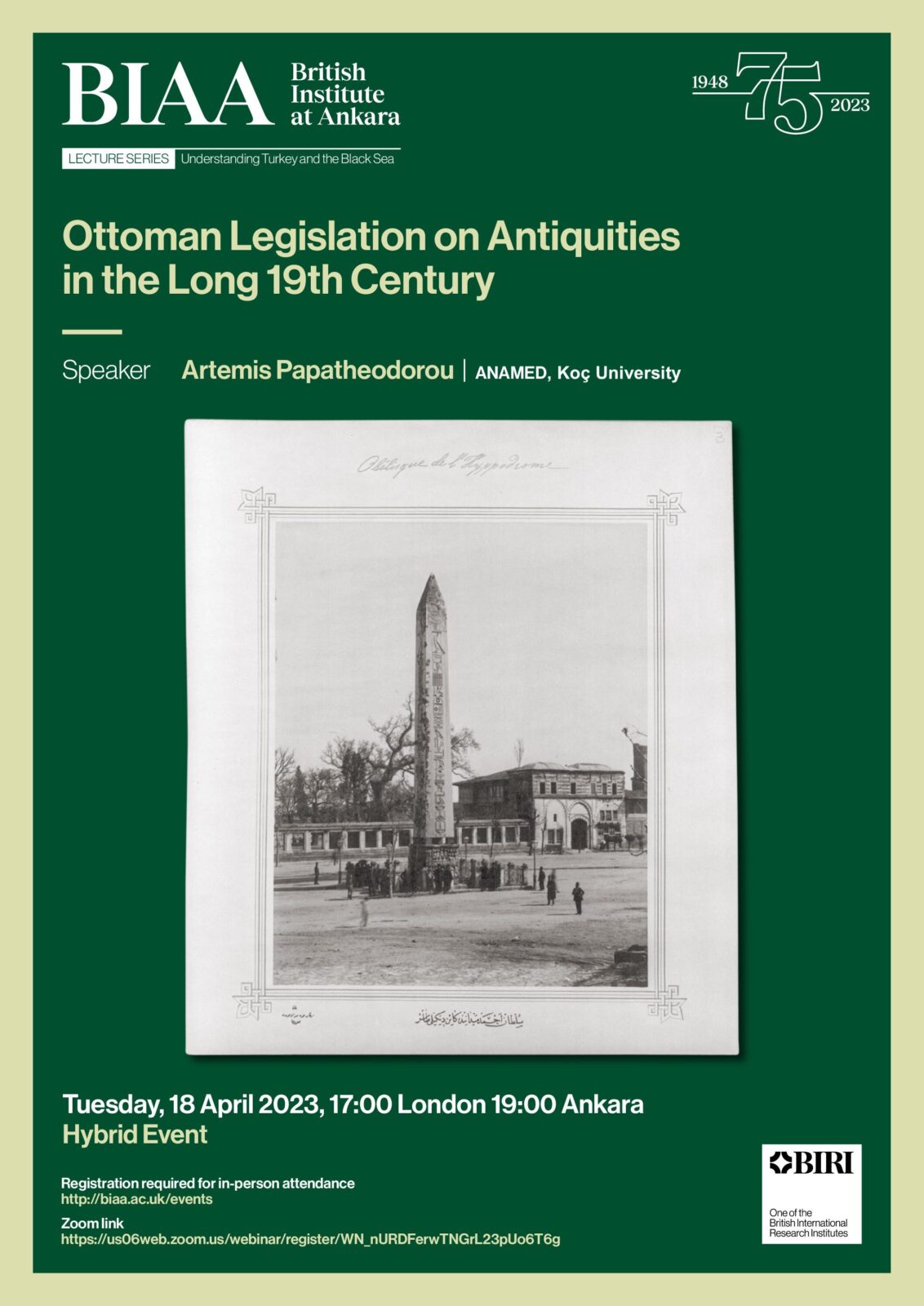
Location BIAA, 154 Atatürk Bulvarı, and online
Date and time
Tuesday 18 April 2023
16:00 - 17:30 (London GMT)
19:00 - 20:30 (Ankara UTC+3)
Speakers
Artemis Papatheodorou
ANAMED, Koç University
In modern times, the Ottoman Empire was one of only a handful of states that pioneered archaeological heritage protection through law. Between 1869 and 1906, the Ottoman state promulgated four special laws on antiquities (asar-ı atika nizamnamesi) aimed at regulating this field in a comprehensive manner. This presentation will discuss the goals of each one of these laws. It will also examine their content, especially in terms of protection of antiquities, ownership and export of finds, and archaeological research. This presentation will moreover look into the ways in which the laws on antiquities were implemented throughout the Empire. Finally, it will try to locate the Empire in a global (archaeological) context, primarily through a comparison with Greece and Great Britain.
Dr Artemis Papatheodorou, who received her PhD from the University of Oxford in 2017, is a cultural historian who specialises in the history of archaeology and heritage as well as the classical reception in the Ottoman long 19th century. She has taught at the American University of Sharjah in the United Arab Emirates, and at Panteion University of Social and Political Sciences in Athens, Greece. She is currently post-doctoral research fellow at ANAMED Research Centre, Koç University. Her research project examines the ‘indigenous archaeologies’ of ordinary Ottoman Greeks during the final decades of the Ottoman Empire.